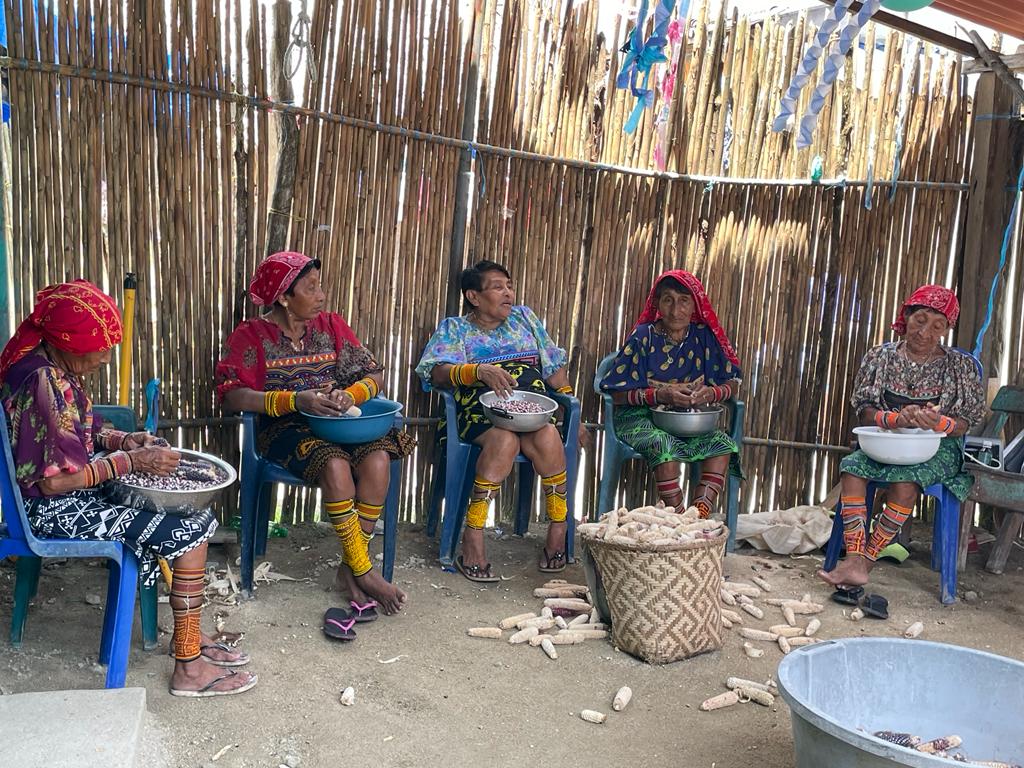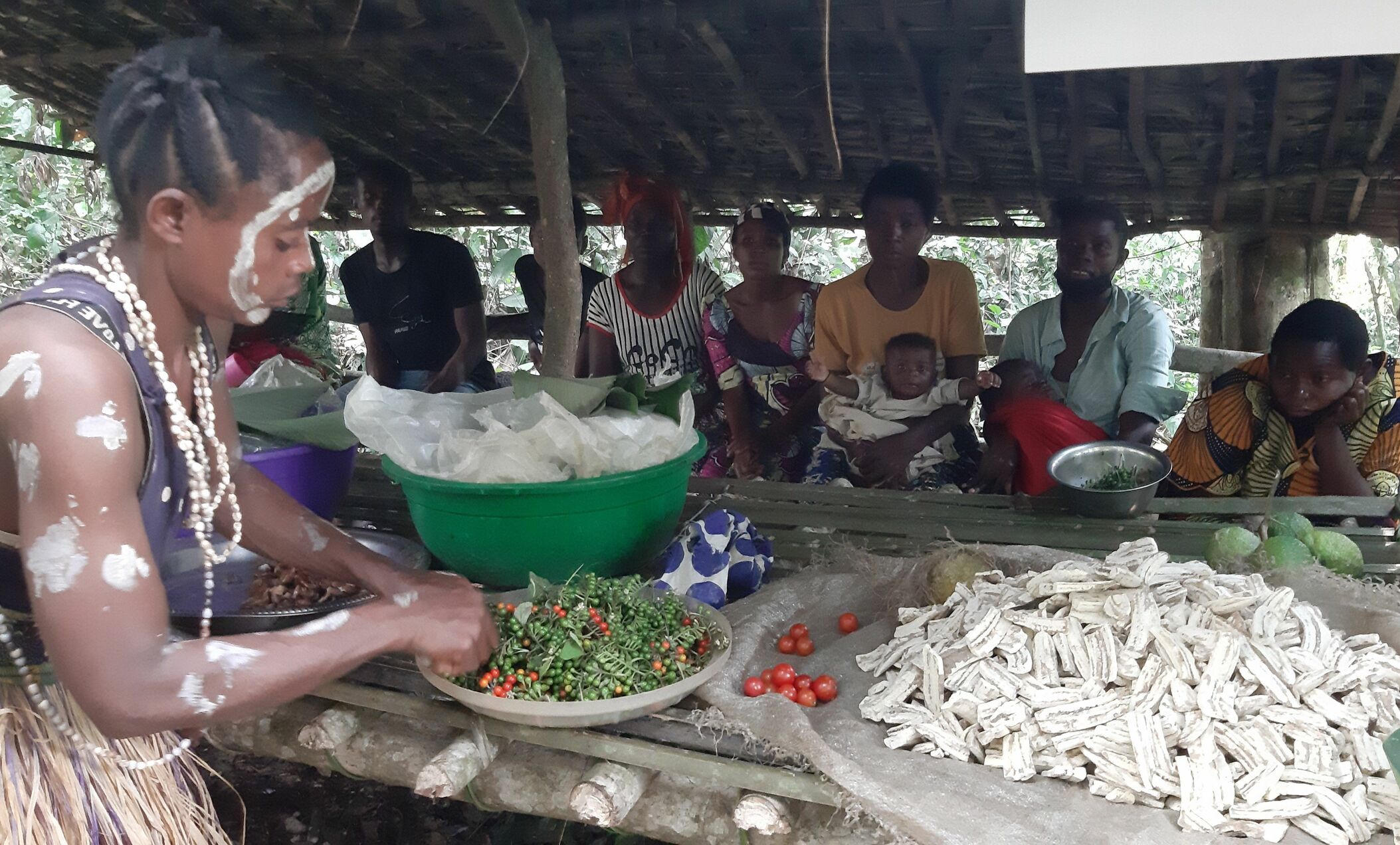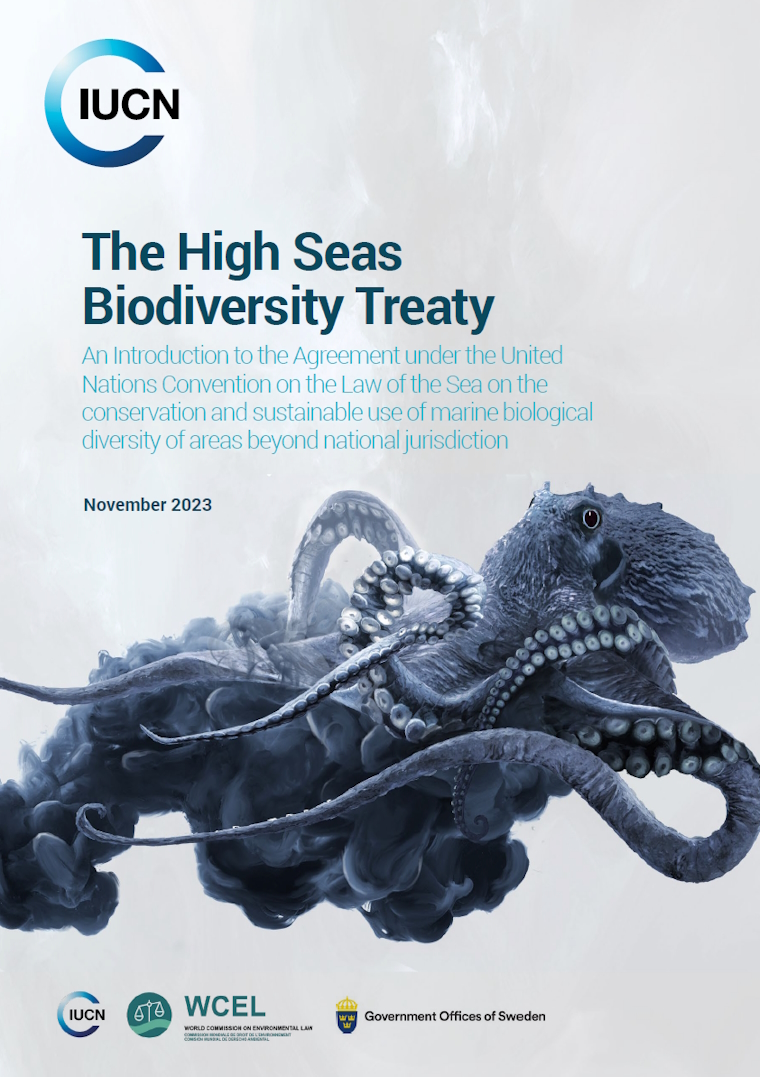Celebrating and upholding Indigenous women – keepers of Indigenous scientific knowledge
Across the globe, Indigenous women are recognised as custodians of traditional knowledge systems, holding fundamental roles in their preservation and intergenerational transmission. The Indigenous knowledge systems they preserve encompass Indigenous worldviews, facilitating the resilience of Indigenous Peoples to not only safeguard their intrinsic relationship with Mother Nature throughout history, but also to build their resilience to today’s concurrent climate and biodiversity crises.
Today, on this International Day of the World’s Indigenous Peoples, IUCN recognises and celebrates the crucial roles that Indigenous women play in preserving nature.
As a Union committed to advancing equality and inclusion, IUCN works in collaboration with its Indigenous Peoples’ Organisation Members to promote Indigenous women’s leadership in conservation and natural resource management.
For example, through the Global Environment Facility-funded Inclusive Conservation Initiative (ICI), IUCN works with Conservation International to support direct conservation finance and technical support to Indigenous Peoples and local communities. Recognising the unique and essential contributions of Indigenous women to thriving territories, landscapes and seascapes, ICI also works to ensure their full and meaningful engagement in conservation by supporting their rights, interests and priorities. For this reason, ICI will work with Indigenous Peoples and Local Communities around the world to develop gender inclusion plans that will include Indigenous women's traditional practices and their participation in decision-making bodies related to natural resource management.
 Photo credits: Onel Masardule, Guna leader, Panama
Photo credits: Onel Masardule, Guna leader, Panama
Across ICI’s global reach, Indigenous women’s roles as knowledge holders and managers support healthy communities and environments. From Panama’s Guna people to Thailand's Lisu populations, Indigenous women “are responsible for seed selection and preservation; uses of plants, animals, and insects not only for food but also to treat illnesses and for nutrition for pregnant and nursing mothers; and transferring knowledge of Traditional Knowledge and Technologies (TKT) to younger generations, largely through oral traditions” (FAO, IWGIA and AIPP 2015). As demonstrated by a Conservation International case study, Indigenous women play a key role in Indigenous medicine, using medicinal plants such as clavo huasca to treat general discomfort and ginger to treat flu symptoms. This knowledge of seeds and plants also allows them to act as forecasters: by selecting the best seeds and storing them in a container for over a year, Indigenous women from Northeast India are able to tell whether the forthcoming year will be characterised by sufficient rain or by drought and whether certain traditional crops will produce good or poor yields. These contributions are extremely important as in communities practicing shifting cultivation in South Asia, Indigenous women perform about 70 percent of the work that sustains these food production systems, which enable greater carbon sequestration, enhance biodiversity and support crop in-situ conservation (Climate Investment Fund, 2021).
 Photo credits: ANAPAC, Democratic Republic of the Congo
Photo credits: ANAPAC, Democratic Republic of the Congo
Being responsible for communal spiritual and cultural activities at the beginning and at the end of each harvest season, Indigenous women are seen as co-guardians of Indigenous systems. For example, Maya Q'eqchi' women from Belize and the Kakchiquel, Kiche and Tzutujil women from Guatemala serve as intergenerational bridges between elders and youth, by passing on their knowledge about observed science regarding nature’s cycles to their daughters and granddaughters, by performing daily natural resource management activities while singing related cooing songs that tie their activities and their families together with the environment that they preserve.
Valuing the scientific and technical knowledge of Indigenous women as key for achieving inclusive conservation outcomes not only preserves biodiversity and keeps Indigenous identities alive – it also supports their resilience in an era where mounting global challenges, ranging from pandemics to extreme weather events to large scale environmental degradation, place unprecedented pressures upon Indigenous communities. The promotion of sustainable, inclusive, just and responsible natural resource management practices that prioritise gender and social inclusion will ensure that the knowledge, voices, priorities and contributions of Indigenous women in all their diversity will help sustain our planet.
Disclaimer
Opinions expressed in posts featured on any Crossroads or other blogs and in related comments are those of the authors and do not necessarily reflect the opinions of IUCN or a consensus of its Member organisations.
IUCN moderates comments and reserves the right to remove posts that are deemed inappropriate, commercial in nature or unrelated to blog posts.



